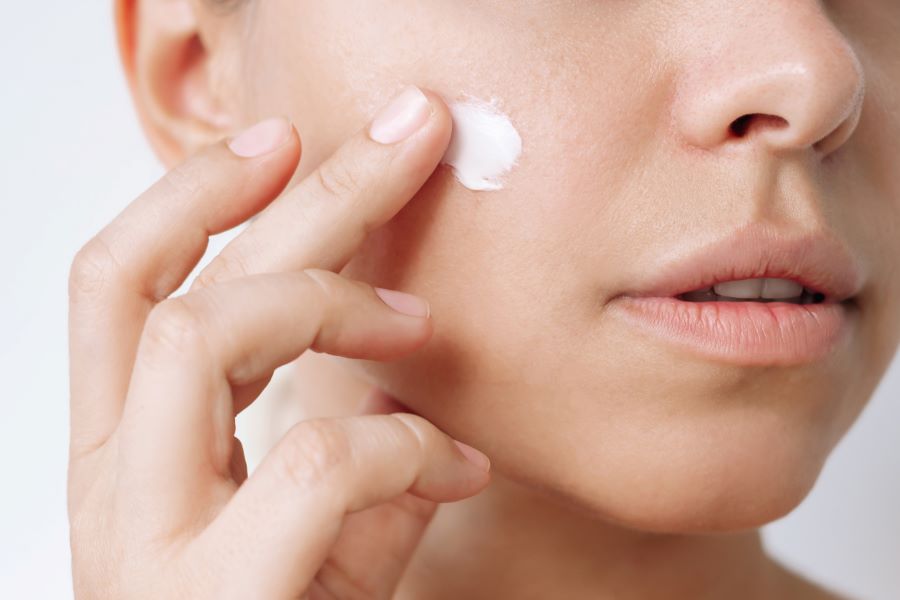The Science of Anti-Aging: Effective Skincare Strategies for Mature Skin
As we age, our skin undergoes numerous changes that can lead to wrinkles, fine lines, and a loss of elasticity. However, with the right anti-aging skincare routine, it's possible to maintain a youthful appearance and healthy skin well into our later years. This article explores effective anti-aging strategies, popular ingredients, and tailored solutions for various skin types and climates.

What Are the Best Anti-Aging Skincare Tips for Mature Skin?
Developing an effective anti-aging skincare routine is crucial for maintaining healthy, youthful-looking skin as we age. Here are some key tips for mature skin:
-
Cleanse gently: Use a mild, non-irritating cleanser to remove dirt and makeup without stripping the skin of its natural oils.
-
Hydrate regularly: Apply a rich moisturizer morning and night to keep skin plump and hydrated, which can help minimize the appearance of fine lines.
-
Protect from sun damage: Always use a broad-spectrum sunscreen with at least SPF 30, even on cloudy days, to prevent further sun damage and premature aging.
-
Incorporate retinoids: Consider adding a retinoid product to your nighttime routine, as these vitamin A derivatives can help boost collagen production and cell turnover.
-
Don’t neglect the neck and décolletage: Extend your skincare routine beyond your face to these often-overlooked areas that can show signs of aging.
Which Anti-Wrinkle Ingredients Are Most Loved by Skincare Experts?
When it comes to fighting wrinkles and other signs of aging, certain ingredients have gained popularity among skincare experts for their proven effectiveness:
-
Retinol: A form of vitamin A that stimulates collagen production and increases cell turnover, helping to reduce the appearance of fine lines and wrinkles.
-
Hyaluronic Acid: A powerful humectant that attracts and retains moisture, plumping the skin and reducing the appearance of fine lines.
-
Vitamin C: An antioxidant that helps protect against free radical damage, brightens skin, and promotes collagen production.
-
Peptides: Short chains of amino acids that can help stimulate collagen production and improve skin firmness.
-
Niacinamide: A form of vitamin B3 that can improve skin elasticity, reduce inflammation, and even out skin tone.
Why Are Local Anti-Aging Creams Gaining Popularity?
In recent years, there has been a growing trend towards locally produced anti-aging creams. This shift can be attributed to several factors:
-
Customization for local climates: Local brands often formulate products that are better suited to the specific environmental conditions of the region.
-
Use of indigenous ingredients: Many local brands incorporate native botanicals that may have unique anti-aging properties.
-
Reduced carbon footprint: Choosing local products can be more environmentally friendly due to shorter transportation distances.
-
Support for local economies: Purchasing from local brands helps support small businesses and local economies.
-
Transparency and trust: Consumers often feel a stronger connection to and trust in local brands, as they may have more insight into the production process and ingredients used.
What Are the Best Solutions for Senior Skin in Hot and Dry Climates?
Hot and dry climates can be particularly challenging for mature skin, often exacerbating issues like dryness and sensitivity. Here are some solutions tailored for senior skin in these conditions:
-
Use a humectant-rich moisturizer: Look for products containing hyaluronic acid or glycerin to help attract and retain moisture in the skin.
-
Apply sunscreen diligently: Choose a high SPF, broad-spectrum sunscreen and reapply frequently to protect against intense UV exposure.
-
Incorporate facial oils: Natural oils like argan or jojoba can provide an extra layer of hydration and protection against moisture loss.
-
Stay hydrated: Drink plenty of water throughout the day to maintain skin hydration from the inside out.
-
Consider using a facial mist: A hydrating mist can provide quick relief and refreshment throughout the day.
How to Choose Effective Skincare for Different Skin Tones?
Selecting the right anti-aging skincare products for different skin tones is crucial for addressing specific concerns and achieving optimal results:
-
For lighter skin tones: Focus on products that address sun damage and hyperpigmentation, such as vitamin C serums and gentle exfoliants.
-
For medium skin tones: Look for products that target both hyperpigmentation and texture issues, such as alpha-hydroxy acids (AHAs) and retinoids.
-
For darker skin tones: Choose products that address hyperpigmentation and uneven skin tone without causing irritation, such as niacinamide and kojic acid.
-
For all skin tones: Regardless of skin color, sun protection is crucial. Choose a broad-spectrum sunscreen that doesn’t leave a white cast on the skin.
-
Consider specific concerns: Some issues, like melasma, may be more common in certain skin tones and require targeted treatments.
| Product Type | Provider | Key Features | Cost Estimation |
|---|---|---|---|
| Retinol Serum | The Ordinary | 1% Retinol in Squalane | £5.80 |
| Vitamin C Serum | SkinCeuticals | 15% L-Ascorbic Acid | £140 |
| Hyaluronic Acid Moisturizer | CeraVe | Ceramides and Hyaluronic Acid | £13 |
| Niacinamide Serum | Paula’s Choice | 10% Niacinamide + Zinc | £44 |
| Broad-Spectrum Sunscreen | La Roche-Posay | SPF 50+, Suitable for Sensitive Skin | £17.50 |
Prices, rates, or cost estimates mentioned in this article are based on the latest available information but may change over time. Independent research is advised before making financial decisions.
In conclusion, effective anti-aging skincare involves a combination of proven ingredients, tailored solutions for different skin types and climates, and a consistent routine. By understanding the unique needs of mature skin and choosing appropriate products, it’s possible to maintain healthy, youthful-looking skin at any age. Remember to consult with a dermatologist for personalized advice, especially when introducing new products into your skincare regimen.
This article is for informational purposes only and should not be considered medical advice. Please consult a qualified healthcare professional for personalized guidance and treatment.



